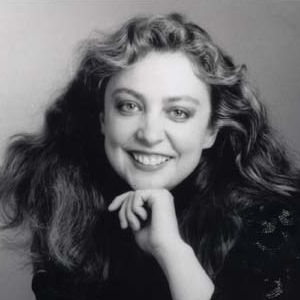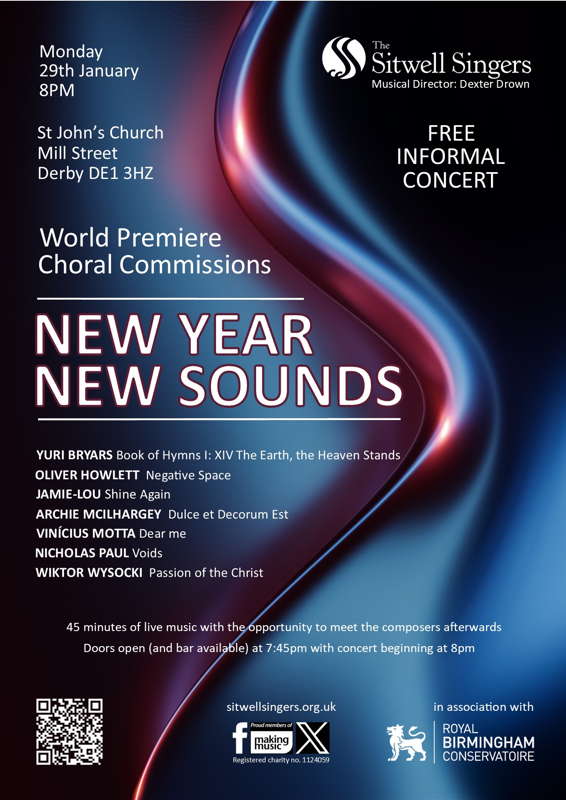- streaming
- Nietzsche
- Kai-Young Chan
- Laurent Naouri
- Birtwistle
- Alex Wyatt
- Melton Mowbray
- Musgrave: For the Time Being: Advent
 SPONSORED: An Outstanding Evening - Bill Newman listens to American pianist Rorianne Schrade.
SPONSORED: An Outstanding Evening - Bill Newman listens to American pianist Rorianne Schrade.
All sponsored features >>
 DISCUSSION: What is a work? John Dante Prevedini leads a discussion about The performing artist as co-creator, including contributions from Halida Dinova, Yekaterina Lebedeva, Béla Hartmann, David Arditti and Stephen Francis Vasta.
DISCUSSION: What is a work? John Dante Prevedini leads a discussion about The performing artist as co-creator, including contributions from Halida Dinova, Yekaterina Lebedeva, Béla Hartmann, David Arditti and Stephen Francis Vasta.
A Runaway Success
MIKE WHEELER listens to choral music by seven students from the Royal Birmingham Conservatoire
What looked, on paper, to be an interesting idea, turned out to be, already, one of the highlights of the year. The Sitwell Singers and conductor Dexter Drown presented a one-hour concert, free to attend - St John's Church, Derby, UK, 29 January 2024 - in which they performed seven pieces specially written for them by students at the Royal Birmingham Conservatoire, with each work prefaced by a short conversation between its composer and Dexter Drown. Anyone who may have thought it was a risky undertaking (on just four rehearsals) must have been delighted to have been proved wrong.

Poster for New Year New Sounds
Wiktor Wysocki's Passion of the Christ was, he said, 'inspired by Górecki', referring specifically to the piece's introduction, and the affinity was certainly recognisable. His own text comprised just four words, repeated over and over again, and the work slowly gained harmonic intensity, a process the choir had well under control, until the highly effective abrupt final cut-off.
Dulce et Decorum Est, by Archie McIlargey, sets Wilfrid Owen's well-known First World War poem graphically describing a poison gas attack. A marching figure in the lower voices produced an effect strikingly similar to the mediaeval effect of hocketing, as they bounced off each other. The result captured both Owen's urgency at the start, and the desolation of the poem's final lines.
The singers re-arranged themselves into what is known as 'scrambled position' - the voice-parts not separated on stage, but intermingled - for Oliver Howlett's Negative Space. He set up his 'wall of sound' with the choir singing not words but sounds from the International Phonetic Alphabet. As it opened, I couldn't help being reminded of a work such as Ligeti's Lux Aeterna. The sonorous, often dense, textures were no doubt a test of tuning and sustained tone, which the singers carried off with confidence.
They returned to their usual platform arrangement for Book of Hymns 1: XIV The earth, the heaven stands, in which Yuri Bryars sets words by Mary Sidney Herbert, Countess of Pembroke (1561-1621). It is, he told us, the penultimate movement of a longer work. With its flowing triple time, it described a well-defined expressive arc, which found a sympathetic response from the choir.
The composers of the remaining three pieces wrote their own words. The text for Vinícius Motta's Dear Me begins in English, the music full of subtle harmonic shifts. Half-way through, it switches to Portuguese, with an effective contrast in mood produced by more staccato writing.
Assistant conductor David Henshaw took over for Jamie-Lou's Shine Again. The composer told us she 'didn't want to write a sad piece', and she certainly didn't. The rhythmic central section, in particular, has a genuinely popular flavour, and I can imagine the piece going down well with an accomplished community choir.
Finally came Voids, by Nicholas Paul. The 'eerie, ethereal' atmosphere, and the outer-space imagery, he said he was aiming at certainly came across, with melodic phrases unfolding against note-clusters, and the textures gradually clarifying as the piece proceeded.

From left to right: Oliver Howlett, Nicholas Paul, Jamie-Lou, Wiktor Wysocki, Vinícius Motta, Archie McIlargey and Yuri Bryars
It was not always easy to hear what was being said in the introductions - only two of the composers opted to use the offered microphone. Also, a printed list of titles, composers' names and sources of the various texts would have been helpful. I understand that both these points have been taken on board. But the concert was a runaway success in every other respect. Even more encouraging was the fact that there was already talk of a similar event next year.
Copyright © 11 February 2024
Mike Wheeler,
Derby UK



